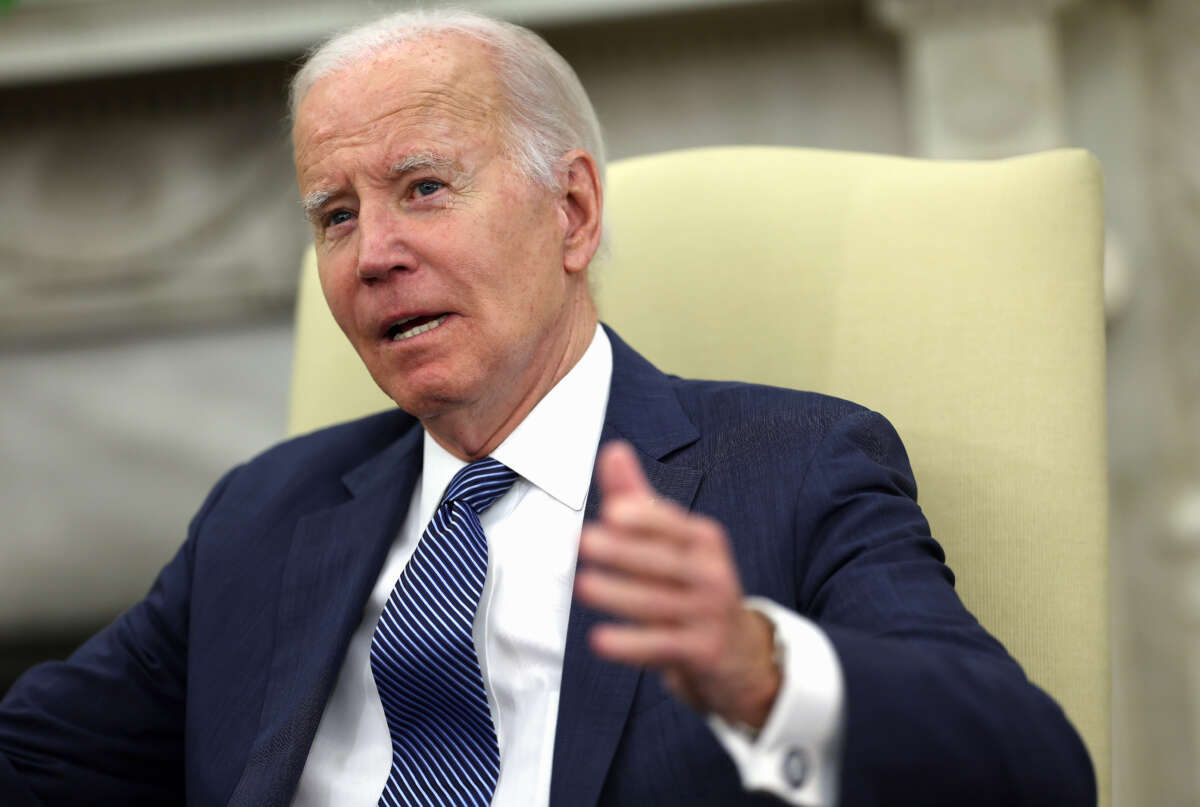Support justice-driven, accurate and transparent news — make a quick donation to Truthout today!
President Joe Biden has vetoed a conservative-backed bill that would have repealed his plan to deliver up to $20,000 of relief to student debtors across the country.
The bill would have nixed the plan (to provide up to $10,000 of forgiveness to student debtors making under $125,000 a year and $20,000 to Pell Grant recipients), which hasn’t yet been able to take effect. Currently, it awaits judgment before the Supreme Court, which appears poised to shut it down anyway.
Student debt advocates have said that the bill would force borrowers to retroactively pay for student loan payments that were put on hold during the student loan payment pause.
Biden touted his veto on Thursday, pointing out that, despite Republicans’ false arguments about student debt relief, it would provide the most benefit to middle- and low-income people.
“I’m not going to back down on my efforts to help tens of millions of working- and middle-class families. That’s why I’m going to veto this bill,” he said.
The resolution recently passed the House and Senate, largely on party lines. Four members of the Democratic caucus voted with Republicans to pass the bill: infamously conservative Senators Joe Manchin (D-West Virginia) and Kyrsten Sinema (I-Arizona) and right-wing Blue Dog Coalition co-chairs Representatives Jared Golden (D-Maine) and Marie Gluesenkamp Perez (D-Washington).
Biden went on to jab Republicans in a video posted on the veto on Thursday. “Don’t forget: Some of the same members of Congress who want to cut student aid personally received loans to keep their small business afloat during the pandemic,” he said, referring to Republicans who loudly opposed the plan when it was announced last summer but who themselves have had huge loans forgiven through the Payment Protection Program (PPP) loans given as part of the COVID-19 economic stimulus.
Rep. Mike Kelly (R-Pennsylvania), for instance, who voted for the vetoed bill and who has called the relief plan “unfair,” has had $987,237 in PPP loans forgiven, the White House pointed out last August. Representatives Vern Buchanan (R-Florida) and Kevin Hern (R-Oklahoma) and Sen. Markwayne Mullin (R-Oklahoma), who disingenuously whined about the supposed elitism of student debt relief, each got over $1 million in PPP loans forgiven.
“Some of the same members of Congress who supported this bill voted for huge tax cuts for corporations and the wealthy as well,” he continued. “But when it comes to hard working Americans trying to get ahead, dealing with student debt relief, that’s where they drew the line.”
However, despite Biden’s veto, the president has also taken steps in recent days to harm student debtors. The debt limit deal, which passed Congress and was signed into law last week, declares an official end to the student loan payment pause of August 30 and prevents the administration from extending the pause again. The bill was negotiated by House Speaker Kevin McCarthy (R-California) and Biden — and Biden has touted the work of “both sides” in passing the package.
Press freedom is under attack
As Trump cracks down on political speech, independent media is increasingly necessary.
Truthout produces reporting you won’t see in the mainstream: journalism from the frontlines of global conflict, interviews with grassroots movement leaders, high-quality legal analysis and more.
Our work is possible thanks to reader support. Help Truthout catalyze change and social justice — make a tax-deductible monthly or one-time donation today.
